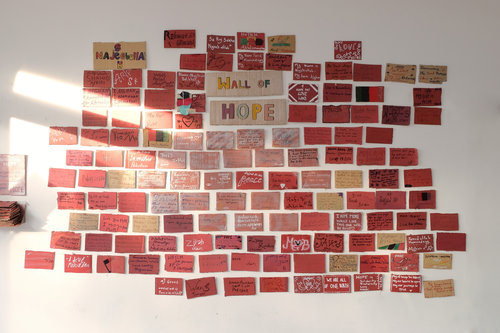- About
- Topics
- Picks
- Audio
- Story
- In-Depth
- Opinion
- News
- Donate
-
Signup for our newsletterOur Editors' Best Picks.Send
Read, Debate: Engage.
| September 07, 2020 | |
|---|---|
| topic: | Good Governance |
| tags: | #Balkan route, #Migrant Crisis, #discrimination |
| located: | Bosnia and Herzegovina, Croatia |
| by: | Katarina Panić |
Citizens of Velika Kladuša, a north-western town in Bosnia and Herzegovina have been demonstrating against uncontrolled arrivals of migrants for a while.
"The people are afraid both for their property and for their security. They are burgling the houses, stealing, taking vegetables from the gardens, taking clothes that are drying outside the houses. We are not safe during the day, either. We can't take it anymore", one of the residents says.
Their protests were peaceful, until Sunday, August 16th when they stopped the bus with migrants, smashed the windows and forced the driver to return without letting the passengers out.
"I have water in my house yard. They come there, strip naked and take a bath. My child saw them and now has a fear of windows. The window blinds are always down", Sead Karajić from Velika Kladuša told local media. Police fined him for breaking the windows on the bus. After he was released, a few hundred people greeted him with applause.
"Next time, we're going to burn the bus", someone from the crowd shouts.
Three days later the Una-Sana Canton banned the transport of migrants, both to please the citizens and to show the central government that they cannot solve the crisis on their own. This Canton blames weak and incompetent state-level government and the EU for not doing enough to resolve the crisis which has been growing since the previous Balkan route was redirected from Hungary to Bosnia. However, the ban profoundly violates the freedom of movement guaranteed by the constitution and by the European Convention on Human Rights.
"I think it will be challenging to implement the decision to restrict the movement of migrants in practice, because migrants enter through forests, swimming across rivers, and it will be especially difficult to implement such a decision because of its legality", said Peter Van Der Auweraert, head of IOM mission in Bosnia. He added he is interested in "how cantonal decisions will be harmonised with the laws of Bosnia".
Over the last three years, there have been between 7,000-8,000 migrants in Bosnia and Herzegovina at any given time, mostly in the Una-Sana Canton, near the border with EU member state Croatia. Roughly half of them are housed in temporary camps run by IOM; another half is out of the system.
"Bosnia needs more accommodation, which is not only in the interest of migrants sleeping outside but also for the local population who suffer because of these migrants. If the authorities decide to open additional capacities, which will be especially important in the autumn and winter, we are ready to provide everything necessary", Van Der Auweraert added.
In the country with an extremely complex system of government, it seems the authorities do nothing constructive in resolving the migrant crisis. On the contrary, they help further dehumanisation of people on the move, which inspired violence against this population.
"Politicians politicise the issue and turn the problem of migrants into a problem for migrants, confronting residents and migrants, instead of dealing with the organisation of accommodation, basic hygiene and other preconditions and conditions for migrants", editor Edin Zubčević wrote for nomad.ba, a web portal which promotes the freedom, unlike many other media outlets which deepen the gap by their negative coverage.
Selmo Cikotić, the Ministry of Security of Bosnia and Herzegovina, who is negotiating the readmission with some embassies, gave some clumsy and frivolous statements in a TV show in Sarajevo, saying he has been heard some "sexy ideas" on how to return migrants to their country of origin. He also said there are "positive effects of the migrant crisis because they raise public spending", especially during a pandemic "when the income of tourism is seriously reduced".
The Coalition for Combating Hate Speech and Hate Crimes condemned the ban on the movement, requesting the authorities to recall such a shameful decision, emphasising the severity of the challenges must not be an excuse for illegal and discriminatory measures.
"We, therefore, urge the authorities to provide dignified treatment to all vulnerable categories, especially those who are on the move due to the war, the political or economic situation in their countries", the network of NGOs stated.
Zijad Čanić runs a local soup kitchen in Prijedor. He loaded his car with the food and drove some 40 miles to the Una-Sana Canton internal border. He found some 25 people there on the street.
"I was a refugee once. I know how they feel. I wonder what the night will bring. However, I saw the smiles on their faces. One of them asks me to top up his mobile account. There were Red Cross volunteers, media and police there. They are not alone in the end", Čanić told FairPlanet.
By copying the embed code below, you agree to adhere to our republishing guidelines.

